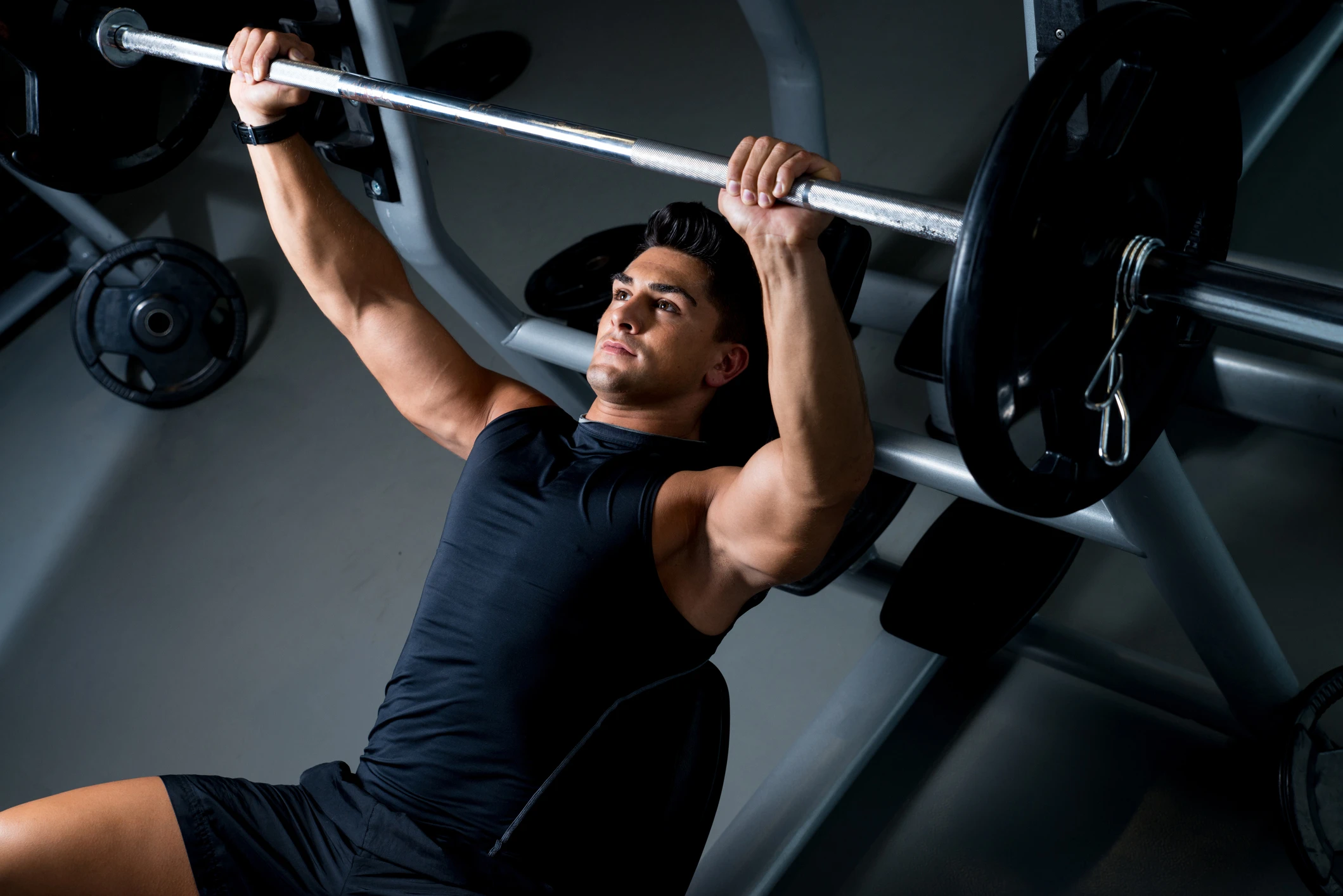
Strength
What are Supersets?
Supersets are a training method that involves performing two different exercises back-to-back with minimal rest in between. This can help increase the aerobic intensity of a workout and reduce the total time it takes to complete a session.
1 min read
Published on
September 8, 2025
Written by
EDGE
Share this article
Types of Supersets
There are several types of supersets, each designed to target your muscles in a specific way:
-
Push-Pull Supersets
The most common type, this pairs an exercise that uses a pushing motion (like a bench press) with one that uses a pulling motion (like a barbell row).
-
Upper-Lower Supersets
This involves pairing an upper body exercise with a lower body one, such as bicep curls followed by squats, to get a full-body workout.
-
Pre-Exhaustion Sets
Here, you perform an isolation exercise to fatigue a specific muscle before immediately doing a compound exercise that uses that same muscle.
-
Cluster Sets
An advanced technique for experienced lifters, this involves performing a high-resistance compound exercise in small bursts with very short rests, allowing you to lift at a higher intensity for longer.
Benefits and Risks
Benefits
The main advantages of supersets are:
-
Reduced workout time
You'll spend less time in the gym by cutting down on rest periods.
-
Increased calorie burn
The non-stop activity elevates your heart rate, turning your strength training into a cardio workout too.
Risks
The main risk is that the fatigue from the first exercise might cause your form to suffer during the second. This can increase the risk of injury. To avoid this, choose exercises you're confident with and don't be afraid to use lighter weights.
When to Use Supersets
You should consider adding supersets to your plan if:
-
You're short on time and want an efficient workout.
-
You're looking to increase the cardiovascular challenge of your routine.
-
You're an experienced lifter with good form.
Supersets are generally not recommended for:
-
Beginners
It's best to master proper form with full rest between sets before adding this intensity.
-
Strength-focused training
If your goal is to lift the heaviest weight possible, you need full recovery between sets.
To get started, simply pick two exercises from your current plan to superset. You don't have to change your whole routine at once.
Recovery
When adding supersets to your workout routine, it's helpful to monitor your post-workout recovery. Supersets can add significant strain to your body, and you may need to account for this with extended rest. The best way to keep track of your recovery is to monitor your blood markers.
A sports blood test provides a detailed look "under the bonnet," revealing how your body is coping with the demands of intense training. Here are some key biomarkers to monitor and why they matter:
-
Testosterone and Cortisol
These are two critical hormones for recovery and performance. Testosterone is an anabolic hormone that helps with muscle growth and repair, while cortisol is a stress hormone that can break down muscle tissue. In an ideal scenario, you want to maintain a good testosterone-to-cortisol ratio. High cortisol can indicate overtraining or stress, which hinders muscle recovery and growth.
-
Creatine Kinase (CK)
This is an enzyme released into the bloodstream when muscle tissue is damaged. A temporary increase after a tough workout is normal, but persistently high levels can signal that you are not recovering adequately and are at risk of overtraining or injury.
-
C-Reactive Protein (hs-CRP)
As a marker of inflammation, elevated hs-CRP levels can indicate chronic, low-grade inflammation from intense training, injury, or illness. Monitoring this helps you understand if your body is struggling to cope with the training load.
-
Ferritin and Vitamin B12
These nutrients are essential for energy production and red blood cell formation, which carry oxygen to your muscles. Deficiencies can lead to fatigue, reduced endurance, and poor recovery, impacting your performance.
By regularly testing these biomarkers, you get objective data to inform your training and nutrition decisions. It helps you identify when you need to back off, when to push harder, and when to adjust your diet to support your body's needs. For more information, you can check out our blood tests for weightlifters and bodybuilders.
Summary
Supersets are an effective and time-saving method for making your workouts more efficient and intense. By performing two exercises back-to-back, you can reduce your gym time, boost your calorie burn, and challenge your muscles in a new way. There are several types to choose from, each with unique benefits. While they're great for experienced lifters, beginners and those focused on pure strength might want to stick to traditional sets with rest.
Blood test for
Advanced Testosterone
12 Biomarkers Included
sports doctor review
Results in 2 working days
Flexible subscription
Medically Reviewed

This article has been reviewed by our medical expert
Our expert Dr Thom Phillips works in NHS general practice and has a decade of experience working in both male and female elite sport. He has a background in exercise physiology and has published research into fatigue biomarkers.
Read Next...
Get expert advice to help you improve your results.
Go to our knowledge centerGet 10% off your first order
Want regular tips on how to make the most of your results? Join our newsletter and we'll give you 10% off your order!



